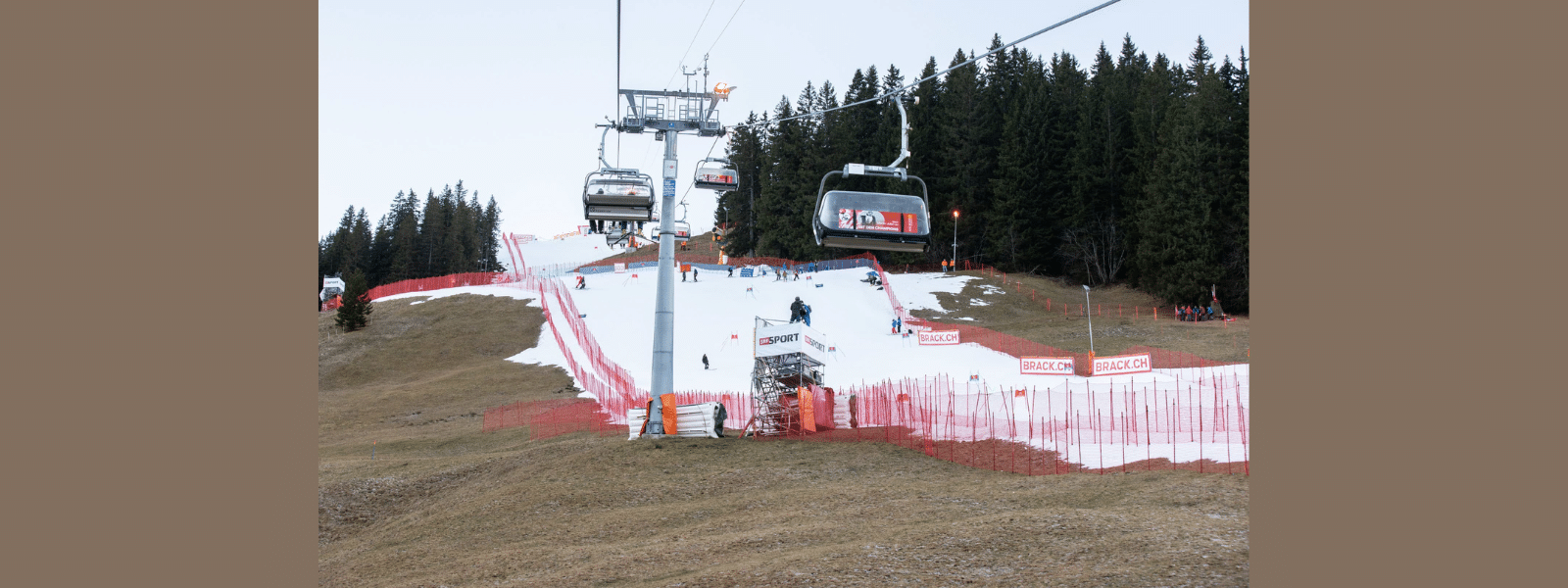Need For Climate-Friendly World Cup Calendar

[ad_1]
Bente Bjørnsen Sherlock
GEPA pictures
The impact of climate change on the World Cup tour and the sport of alpine skiing became more apparent than ever this past season. As the World Cup Finals concluded, the Norwegian Ski Federation sent a report to FIS proposing changes to the World Cup calendar that would decrease the carbon footprint of international ski racing and improve the safety and welfare of the World Cup athletes and staff. The report will likely fuel the debate during the upcoming calendar planning process.
The suggestions include organizing the race schedule in geographic clusters, postponing the start of the competitive season, and establishing the first cluster of World Cup events in the USA. The report suggests reduced long-distance travel will result in environmental benefits and more rest for the racers and staff. Also, it proposes returning to four-year calendar planning instead of the current system with a year-to-year calendar decided annually by FIS in late spring/early summer.
We must solve this together
The Norwegian National Alpine Ski Team and KPMG, an international audit and consulting firm, collaborated to create the report CHANGE THE COURSE (for a Better World Cup).
The analysis focused primarily on travel emissions. According to the report, it became evident that “modifications to the World Cup calendar and operational practices of the International Ski and Snowboard Federation (FIS)” will be necessary to create meaningful emission reductions. The report recommends 11 specific measures.
“We hope this initiative can lead to factors such as athlete and coach welfare, as well as (the topic of) emissions being moved higher up on the agenda internationally, and that the sport’s financial future can be viewed in a more long-term perspective than previously,” the Alpine Director of the Norwegian National Alpine Team, Claus Ryste, stated in a Norwegian Ski Federation press release on March 25.
“Improved athlete welfare and reduction of CO2 emissions go hand in hand. Together with KPMG, we have done the best we can with the available data, but we welcome all input. We do not say we have the final solution. However, we wish to inspire and initiate necessary dialogue and discussion about the future of our sport,” Ryste stated in the press release. He hopes the data collected in cooperation with KPMG can be “the start of an important process we must solve together.”
Sustainable World Cup
The report points to FIS’ mission: “To be the inspiration and catalyst which drives the appeal of competitive and recreational snowsports in a more sustainable manner.”
In addition to focusing on the greenhouse gas emissions created due to the Alpine World Cup, the report states:
“Other structural concerns also negatively impact the sport’s sustainability by harming athletes’ physical and mental health, providing an unfair advantage to athletes with lucrative sponsor deals, and leaving national teams from smaller countries in financial difficulties.”
The report proposes a revised World Cup calendar. Furthermore, the report suggests that the calendaring changes will require operational adjustments by FIS and can enable increased national team and athlete contributions.
Revised World Cup Calendar
According to the report, the most effective way to improve sustainability is for FIS to change the World Cup calendar. The full report provides detailed information and suggestions.
Suggested measures regarding the calendar:
– “Holding the World Cup opening in North America in November.”
– “Establish the competition calendar in 4-year blocks and select event organizers from a pool.”
– “Implement a transparent calendar-setting process, with a list of evaluation criteria for potential organizers.”
– “Arrange more competitions in geographical clusters.”
– “Move the World Championships to the end of February/beginning of March.”
– “Consider more combined events and shadowing of World Cup for para-team and European Cup.”
National team and athlete contributions
The report states that if FIS implements the suggestions and restructures the calendar, national teams and World Cup athletes can reduce emissions.
Suggested measures regarding national team and athlete contributions:
– “Restructure pre-season training to minimize travel.”
– “Limit the number of trips home during the season.”
– “Selecting means of transport with lower emissions.”
If the World Cup calendar schedules several competitions in geographical clusters before moving on to another region, teams and service personnel will travel shorter distances between venues within each cluster. According to the report, there will be a decreased need for airplane or helicopter flights, and more environmentally friendly transportation, such as electric cars or trains, can be used. Additionally, less long-distance and trans-Atlantic travel will decrease the strain on athletes, coaches, ski technicians and other staff traveling with the World Cup tour.
Data collection
The report states that the proposed calendar changes, which aim to limit greenhouse gas emissions, are based on data primarily linked to the travel patterns of the Norwegian men’s and women’s national teams. Workshops involving the Norwegian men’s, women’s, and para teams and meetings with trainers and staff in the federation provided additional insights to supplement this data.
Because the World Cup generates greenhouse gas emissions in addition to those related to travel, the report proposes organizing information collection to increase knowledge and understanding of both the materiality of emission sources and the consequences of climate change on the World Cup.
Suggested measures regarding data collection to increase knowledge:
– “Assessing the implication of climate change for World Cup events”: The aim is to increase the resilience of the sport and reduce greenhouse gas emissions. As part of this, strategic scheduling should ensure that events are organized at a time and place where the location is most likely to have natural snow.
– “Greenhouse gas accounting for national teams and competition organizers”: If national teams and event organizers can identify potential emission-reducing measures, this information can create an overview allowing strategic decision-making “related to minimizing the sport’s climate footprint,” the report states.
You can read the full report at changethecourse.no
Related articles
FIS Chief Race Director Markus Waldner Discusses the Issues: Alpine World Cup.
Zermatt/Cervinia Downhills Excluded from 2024/25 Alpine World Cup Draft Calendar.
[ad_2]
Source link




